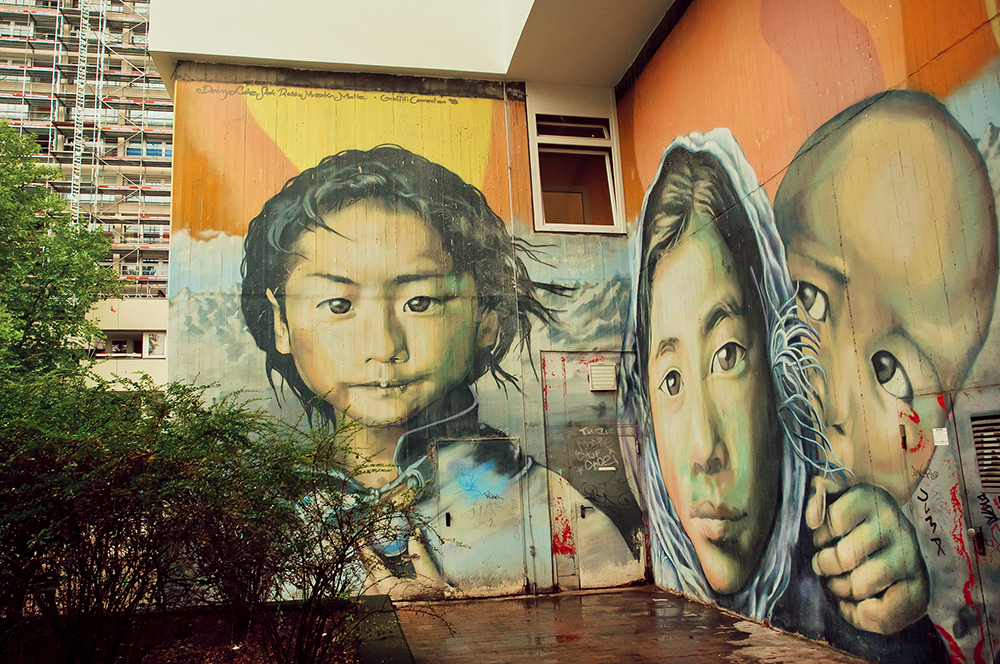Report on the side event at the 58th U.N. Commission on Social Development addresses the harmful effects of homelessness on single mothers and their children that can be mitigated by improved shelter systems, innovative support programs including access to education, and good governance. (Part II of a two-part ECPC news series)
NEW YORK, NY—The UN elected event, "Single Mothers` Vulnerability to Homelessness and Its Impact on Children" was held on the side of the 58th UN Commission on Social Development on 18 February 2020. Organized by the international NGO, Make Mothers Matter (MMM), a panel of nine global experts, led by a representative from the New York Immigration Coalition (NYIC), raised concerns about the economic, physical and mental health challenges homeless single mothers and their children face in the United States and in regions around the world. The panel identified key causes of homelessness, exemplary programs, and ways in which the shelter system can better improve the lives of resident children and their mothers on their path toward self-empowerment, sustainable employment, housing, and education.
Captured in the report below are summaries of the nine presentations made by event panelists that include main points raised and calls to action. The report concludes with a recap of the several key points raised throughout the course of the event.
►EVENT HIGHLIGHTS
Panelists
- Abbey Sussell, MPH (Moderator) - BA Public Charge Fellow, New York Immigration Coalition (NYIC). "How the new US Public Charge Rule impacts immigrant families"
- Jacqueline Leduc - Representative at the UN in New York for Make Mothers Matter (MMM). "Single mothers and homelessness"
- Zena Grimes – Activist, International Movement ATD Fourth World. ""For the love of my children." A former homeless mother tells her story"
- John Greenwood - Chief Operating Officer, Homes for the Homeless (HFH), New York. "Homes for the homeless in NYC: Innovations in education, job skills training and personal empowerment"
- Jean Bolly Kouassy - Founder and President, Aide à la Jeunesse Africaine Défavorisée (AJAD). “Fringe of life” Single mothers and their children in Cote D'Ivoire"
- Elizabeth Werner, PhD – Assistant Professor of Behavioral Medicine in the Department of Obsetrics and Gynecology, Columbia University Irving Medical Center. "Interrupting the transgenerational transmission of poverty, trauma and socio-emotional problems: Changing the trajectories of pregnant homeless women, and women with postpartum depression"
- Angelica Ponguta, MPH, PhD - Associate Research Scientist Yale Child Study Center; Expert Consultant to the Early Childhood Peace Consortium (ECPC). "The impact of homelessness on child and human development. An Urgent Call to Action"
- Marie-Noelle Couderc - Founder and Director, La Maison de Tom Pouce, France. "A call to action to help migrant mothers in France"
- Vanesa Treers – President, Soroptimist International of Metro New York. "Superheroes of the Live Your Dream Award "
Acknowledgements and gratitude
Organized by Make Mothers Matter (MMM), an international organization that for the past seventy years has been placing mothers - the first educators of their children alongside fathers - at the heart of its mission, advocating for and supporting them as change makers for a better world.
►TALK SUMMARIES
Talk 1. How the new US Public Charge Rule impacts immigrant families
Event moderator,
Abbey Sussell, Public Charge Fellow at the
New York Immigration Coalition (NYIC), stated the purpose of the event — to showcase the initiatives, policies, and best practices being implemented in countries across the globe that address the root causes of homelessness, the inequities faced by homeless families, and the unique vulnerabilities faced by single mothers and their children. Poverty, lack of affordable housing, domestic violence, mental illness, and forced immigration increase the risk of single mothers and their children becoming homeless.
Ms. Sussell described her role at NYIC as being one that focuses specifically on
US Public Charge policy. She drew attention to its newly proposed rule that NYIC says furthers the issue of low-income immigrant individuals and family communities in the United States. Proposed by the current federal governmental administration, the
new policy rule would affect green card and temporary visa applicants who have either used government benefits or are likely to use them in the future or have insufficient financial resources. Applicants will be forced to choose between 1) governmental assistance including healthcare, housing and food benefits, or 2) remaining in the United States without governmental assistance.
Talk 2. Single mothers and homelessness
Jacqueline Leduc, Representative at the UN in New York for
Make Mothers Matter (MMM), reported on the global status of single parent households. She highlighted that globally single-parent households represent 8% of households (with the vast majority being single mothers), a figure which is on the rise in most regions. Single motherhood can have many causes (flying domestic violence, separation of divorce, widowhood, run-away father, etc.), but it is seldom a choice.
She stated that the households without fathers is especially common in Latin America, the Caribbean and in sub-Saharan Africa. Fatherless households in European, North American, Northern African and Western Asia can be explained by higher divorce rates. In contrast, fewer single parent household are observed in other world regions. For example, in Asia and Africa, economic barriers, cultural patterns of residence, and the social stigma attached to childbearing outside of marriage, lead to lower rates of single motherhood.
She provided statistics by country with respect to single mothers who are at increased risk for poverty and homelessness, including:
- In France in 2017, 2400 new mothers – mostly migrant women) have nowhere to go when leaving the hospital after giving birth..
- in the UK, one in every 55 single parent families became homeless in 2017-18. In 92% of these 26,610 cases, the homeless parent was a single mother.
She gave an account of the many socioeconomic disadvantages that single mothers experience, including:
- discrimination in the workplace,
- higher extreme poverty rates for women compared to men,
- lower access to higher-paying, decision-making job positions, and
- the absence of a partner with a second income.
She elaborated on the sociocultural disadvantages single mothers face, including rejection by family members (immediate and extended) and community members, and being perceived by prospective landlords as risky tenants.
She raised concerns about the dramatic increase in the number of homeless single parent families seeking asylum in Europe, due to forced immigration caused by war and extreme poverty.
She raised particular concern about the detrimental impact on the health and mental health of homeless single mothers and their children.
Talk 3. "For the love of my children." A former homeless mother tells her story
Zena Grimes, an activist at
ATD Fourth World, shared the compelling story of her plight as a single mother with children living in the New York City shelter system. She recalled “how lost” she had felt while struggling to financially support her family. She and her children faced chronic uncertainty during the six-year period when they were caught up in the shelter system that forced them to relocate seven times across three different boroughs. She recounted having to become accustomed to new people following each move and having to transition her children from school to school while protecting them from school bullies — all while suffering the psychological effects of forced change.
It was when her children expressed interest in attending workshops in drawing, reading and computer training, that she became involved with the ATD Fourth World organization and its community of people in whom she found solidarity and support. She became an ATD Fourth World advocate and remains active to this day.
She concluded her story with a call for solidarity among mothers and families who strive to break free of the chains of homelessness. She underscored how an enduring love for and strong devotion to one's children can sustain a homeless parent through the toughest of times.
“I never went back into the shelter system after I made a promise when I had my daughter Cassandra: I will never go back to the shelter system. And you can keep your head up and move forward.”
Talk 4. Homes for the homeless in NYC: Innovations in education, job skills training and personal empowerment
John Greenwood, Chief Operating Officer at
Homes for the Homeless (HFH), an affiliate of the Institute for Children, Poverty and Homelessness, began his talk by emphasizing three overarching conditions that heavily contribute to the homelessness situation in New York City:
- Lack of affordable housing causes families who are living in poverty to turn to the shelter systems.
- Lack of coordination exists among various social service agencies including medical, mental health, housing and child protective services.
- The Department of Homeless Services in New York City is very aggressive in pushing resident families to move out of the shelter system and into permanent housing, without enough consideration of a family’s readiness to do so.
He described HFH as a non-profit New York City service provider that consists of three shelters in the Bronx and one large shelter in Queens that houses 255 families. HFH delivers on-site services to residents including access to grades Pre-K-12 education, and after-school programs that provide parents with time to search for employment and permanent housing. HFH talent shows, family fun nights and workshops help resident members build self-confidence as well as improve social skills. The HFH annual summer camp provides parents with opportunities for self-improvement while children build relationships with peers, experience nature and experimental learning.
Mr. Greenwood announced that a fourth facility will soon open in the Bronx. The new facility will not only provide early education and after school programs to children, but also culinary arts education to parents, a job skill that can lead to employment and permanent housing. The shelter will also pilot a new and innovative project that aims to connect community members with shelter residents in two ways.
- By changing the shelter into a residential community center to help lessen perceived fear towards shelters.
- By providing shelter residents with opportunities to meet local community members to help increase their social presence as well as build better lives.
Mr. Greenwood expressed concern, that on average, families stay in the shelter system for close to one year. He emphasized that pushing families towards permanent housing will not in itself solve the homeless problem. Shelters also need to find ways to boost a resident’s self-confidence and job interview skills. Doing so can further increase the success rate of a resident in securing a good job and permanent housing.
He concluded,
“I think the overall policy that's being pushed in New York City right now is just moving people into permanent housing. We really need to rethink it and say if we're going to have families with us for such a long time, how can we engage them in ways that they want to be engaged.”
Talk 5 (video message). “Fringe of life” Single mothers and their children in Cote D'Ivoire
In this video message, a single mother living in Cote D'Ivoire shares her story about her financial difficulty in providing daily meals for her family. She talks about the types of social stigmas that cause harm to single mothers. She advocates for more daycare facilities to allow single mothers ample time to search for employment.
Jean Bolly Kouassi, Founder and President of Aid to Disadvantaged African Youth (AJAD), raises concern for unregistered children from families abandoned by fathers.
“They have no identity, they cannot go to school, they are stateless in their own country.”
He calls for interventions at local and national levels to support single mother families, create care structures, and make fathers who have abandoned their children, accountable.
Talk 6. Interrupting the transgenerational transmission of poverty, trauma and socio-emotional problems: Changing the trajectories of pregnant homeless women, and women with postpartum depression
Dr. Elizabeth Werner, Assistant Professor of Behavioral Medicine and Obstetrics and Gynecology (OBGYN),
Columbia University at New York Presbyterian (NYP), spoke on the issues and interrelatedness of homelessness, single motherhood, pregnancy, depression, and poor health factors. In addition, she talked about the physical, psychological and emotional damage homeless children experience and its impact on their emotional learning and developmental trajectories.
Pregnant women who are homeless. She shared examples of her research that found:
- Homeless pregnant women face a greater challenge when pursuing employment, especially if a job is labor intensive.
- Pregnant women living in the forced shelter-to-shelter system will likely receive less prenatal care by relying upon emergency room visits.
- The detrimental and stressful effects of homelessness on a pregnant woman`s physical and mental wellbeing can lead to birth complications and preterm labor.
- The cyclical relationship between being homeless and being depressed can increase the risk of suffering from the other.
She emphasized why homeless motherhood is a major national mental health crisis:
“Lifetime rates of depression for homeless mothers are from 45% to 85% and more than 25% of homeless mothers have made at least one suicide attempt during their lifetimes.”
The deleterious effect of postpartum depression on women. According to Ms. Werner, research findings show that
postpartum depression has been found to increase the risk of a woman becoming homeless within a few years after giving birth. This depressive condition can impair a woman’s occupational and social functioning (known to play a key role in children`s development), causing a significant decrease in the quality of mother-infant interactions (categorized by more hostility or disengagement). The condition can impact a whole family and create discord among members.
She shared examples of research findings that pertain to the deleterious effect of postpartum depression on the cognitive and emotional development of children:
- At nine months, babies of mothers who had postpartum depression were found to have less social engagement, poor emotional regulation and higher cortisol levels.
- At 18 months, babies of mothers who had postpartum depression were found to have experienced a negative effect on their cognitive development as revealed by the Bayley cognitive test.
- Children of mothers who were diagnosed with postpartum depression in the first few months after they gave birth, were shown to have lower IQs at age 11.
She emphasized the urgent need to understand the full effects of postpartum depression on homeless mothers and children. She said that earning a low monthly income or being unemployed, having less than a college education, being unmarried, and having unstable housing makes it 11 times more likely for a homeless woman to have clinically elevated levels of depression than a woman having no socioeconomic status (SES) risk factors.
In conclusion, she underlined the long-lasting effects of postpartum depression, and that access to treatment, especially for homeless mothers, remains to be extremely limited.
“Effective treatments can be embedded right within their medical care at Medicaid clinics all over the city or all over this country. It's hopeful that we have ways that are direct and short-term that can really change the trajectories of these families and these children, and interrupt the transgenerational transmission of poverty, trauma and social-emotional problems”.
(Above image. Street art mural of pregnant women wearing green sari. © Meunierdm, Dreamstime Images.)
Talk 7. The impact of homelessness on child and human development. An urgent call to action
Dr. Angelica Ponguta, Associate Research Scientist in the
Yale Child Study Center and expert consultant to the Early Childhood Peace Consortium (ECPC), invited the attentive audience to look deeply into early childhood development, how it is affected by adverse life conditions, and the scientific body of evidence on its importance. She described childhood development as:
- multi-dimensional with domains such social-emotional, cognitive and physical;
- interconnected with parents, grandparents and the larger community; and
- multi-stage as in a continuum of the early years — starting before the child is conceived (very much effected by the well-being of the parents), exertions during pregnancy, and into the first months of life, the first years of life, and toddlerhood.
Community of care. Dr. Ponguta explained that the interconnected nature of child development means that every member of a society is responsible for the well-being of that society`s children, which she phrased as a 'community of care'. She reported that ideal trajectories of mothers and communities with well children are known. These trajectories include protection systems, early stimulation, early education, health, nutrition, and responsive care. She reinforced that early childhood interventions must be timely, continuous and of quality, placing the parents and the children at the center.
She said that poverty, homelessness, interpersonal violence and different toxic stressors function as overlapping risk factors that alter the physiology of pregnant women. These risk factors can lead to premature birth with dire implications for the newborn and the child throughout his/her life trajectory.
She reported that about one million neural connections are formed in the brain every second during the first years of life, a developmental time when both risks and opportunities are huge. She stressed how important it is for the early brain to form these neural connections, something that relies on the right nutrients and responsive interactions:
“The first brain food is that moment when a mother connects with their child. The constant dialogue between them is one of the first triggers and the stimulus for brain development.”
Dr. Ponguta described how depression and stress, commonly experienced by homeless mothers, disrupt '
serve and return' interactions, a term used to describe a responsive way in which parents and caregivers interact with infants. For example, research findings reveal that a child who lives in extreme poverty hears about 30 million words less by the age of three than their wealthier counterparts.
She shared that such disadvantages and adverse childhood experiences (ACEs), such as abuse, neglect and household dysfunction, accumulate and effect child development on the short and long term. She explained that ACEs can even manifest as risk factors for metabolic disease later in adulthood. She said that there is strong scientific evidence on how ACEs can cause biological changes as well as shape a child`s entire life by altering gene expression in the early brain.
Dr. Ponguta emphasized why early childhood education is the smartest and the most cost-effective intervention a country can prioritize to counter the adverse effects of homelessness. Investing in early education can help avoid the trajectory of a child under achieving his/her full developmental potential.
She underscored that the societal costs of maternal homelessness are substantial and transgenerational, and advocated the urgent need to address this problem. Children who live in poverty with no access to quality early childhood education are more likely to achieve less in school, drop out of school, engage in risky behaviors later in life, and to be more dependent on the welfare system.
She stated that we know much about early childhood development in elevating families and communities but are far away from achieving the goal of equitable and sustainable development.
Dr. Ponguta concluded by calling audience members to join with the ECPC`s efforts on peacebuilding and child development:
“We are part of a larger contingency of multiple agencies and stakeholders, the Early Childhood Peacebuilding Consortium (ECPC). Our goal is to generate evidence, leverage the evidence and communicate it to remind governments and communities that peace and social transformation truly begins in early childhood, with the mother and the family. We are hoping that you will all join us in that quest and bring your different perspectives. Remember that we are interconnected and remember that all of our actions matter in our quest for equity and sustainable development.”
Talk 8 (video message). A call to action to help migrant mothers in France
In this video message, a mother of three children expresses her gratitude to Tom Pouce who provided her with shelter, and opportunities to build self-confidence and learn new skills, enabling her to take better care of herself and her children.
Marie-Noëlle Couderc, Founder and Director of
La Maison de Tom Pouce (a Make Mothers Matter member association in France), describes how her organization provides shelter for many homeless mothers with children, irrelevant of a mother’s age and residency status. She emphasizes how important it is to do so, considering that most residents are minors who have experienced a violent migratory journey and suffer from
post-traumatic stress disorder (PTSD).
Ms. Couderc calls for increased support for single mothers with children at a time when poverty in France is “at the doorstep”. She urges public authorities to take charge in protecting mothers and their babies from exclusion and precariousness.
Talk 9. Superheroes of the Live Your Dream Award
Vanesa Treers, President of the
Soroptimist International of Metropolitan New York, began by sharing a message from a recent winner of the Soroptimist Live Your Dream Award. In the message, a single mother, who went into the shelter system with her children because of domestic abuse, gives thanks to her children for being the biggest motivating force in her life. The mother proudly reported, that because of her winning the Live Your Dream award, she has enrolled in school to further her education and enjoys full time employment.
Soroptimist as a global organization and NGO that works alongside the
United Nations Economic and Social Council (ECOSOC) (active in 122 countries with a network of 76,000 members). Ms. Treers explained that her NGO has federations in America, Europe, Great Britain, Ireland, Southwest Pacific and Africa, which run global and local projects on issues relevant to the welfare of women and girls.
The Live Your Dream Award. Awards are granted to almost 1,700 women each year. Since its founding in 1972, the Dream Award program has provided cash awards to more than 30,000 women, enabling them to obtain an education and achieve economic independence. The award initiative has been shown to decrease homelessness among women, improve their confidence and self-esteem, increase their standard of living by helping them achieve higher paying jobs, and increase the likelihood that their children will obtain a full education and future economic independence.
Ms. Treers reported that nearly all the women served by her organization have overcome enormous obstacles including poverty, homelessness, teen pregnancy, drugs and alcohol addiction, and for some, domestic violence, sexual assault and sex-trafficking.
“The women and girls we serve are some of the most courageous, powerful and inspiring people you can ever meet. Each and every one of them is a superhero. We are honored to share their extraordinary stories.”
She spotlighted the 2016 award winner, an indigenous woman who, during childhood, experienced physical and emotional by her adoptive mother. At the age of 12, she was placed back into the child welfare system and soon thereafter suffered homelessness and sex-trafficking. Being an award recipient enabled her to enter the Transitional Year program at the University of Toronto, which she successfully completed.
“When girls have educated mothers, they are more likely to reach higher levels of education. When women have access to education, families live better lives and their countries are likely to have greater economic growth.”
Conclusion: Homelessness is a huge issue with dire consequences for single mothers and their children
The following key points highlight the magnitude and impact of homelessness on single mothers with children and its emotional, psychological and social-economic consequences:
- Single-motherhood is a rising phenomena, which can have different causes, beginning with domestic violence and run-away fathers. It is most common in Latin America, the Caribbean and in sub-Saharan Africa.
- Single mothers experience several economic disadvantages: discrimination in the workplace, higher extreme poverty rates for women compared to men, lower access to higher-paying, decision-making positions in the enterprise, and absence of a partner with a second income.
- Single mothers also face sociocultural disadvantages such as rejection by their family and community members and being perceived by landlords as risky tenants.
- In France, 2,400 young mothers were found to be living homeless in 2017.
- In the United Kingdom, one in every 55 single mother, parented families is homeless.
- There is a dramatic increase in single parented homeless families seeking asylum in Europe due to immigration caused by war and extreme poverty.
- Lack of affordable housing, lack of coordination among different social service agencies and the aggressive pushing of families into permanent housing are important factors that contribute to the homelessness problem.
- Shelters need to go beyond pushing families towards permanent housing and see long term stays as an opportunity to boost people`s confidence, employment and housing interviewing skills so they have a better chance to retain permanent housing and remain out of poverty.
- Single mothers in Cote D'Ivoire experience many economic and social-cultural problems. Interventions are needed at local and national levels to support single mother families, create care structures and make fathers who have abandoned their families, accountable.
- Becoming pregnant increases a woman’s risk of becoming homeless since it becomes difficult to find work, pursue interviews or perform a strenuous physical labor.
- Homelessness leads pregnant women to engage in less consistent prenatal care, mainly because they must move from shelter to shelter and are forced to rely on emergency rooms.
- Homelessness stress disrupts a pregnant woman`s physical and mental wellbeing and can lead to birth complications and preterm labors.
- Homelessness and depression have a cyclical relationship, one increases the likelihood of the other.
- Postpartum depression increases the risk of becoming homeless two to three years later following birth.
- Postpartum depression can create discord between family members, lead to impairment in occupational and social functioning, and can cause a significant decrease in the quality of the mother-infant interactions, impairing children`s development.
- Lifetime rates of depression for homeless mothers are from 45% to 85% and more than 25% of homeless mothers have made at least one suicide attempt during their lifetimes.
- Postpartum depression has deleterious effects on the cognitive and emotional development of children.
- There are effective treatments for postpartum depression, and they need to be embedded within the medical care at Medicaid clinics in New York City and around the United States.
- Investment in early childhood education is the smartest and the most cost-effective intervention a country can make to counter the adverse effects of homelessness, such as impaired and inadequate parental interactions.
- Poverty, homelessness, interpersonal violence and different toxic stressors function as overlapping risk factors that alter the physiology of pregnant women, with dire implications for the newborn and the child throughout his/her life trajectory.
- There are many minority women, in Europe and around the world, who have experienced a violent migratory journey and developed post-traumatic stress disorder (PTSD). Public authorities and NGOs are needed to protect these mothers and their babies from exclusion and precariousness.
- Live Your Dream Award is granted by Soroptomist International to almost 1,700 women every year to help them overcome enormous obstacles including poverty, homelessness, teen pregnancy, drugs and alcohol addiction.
More information
Publications
- Speak S. The State of Homelessness in Developing Countries.
- Henry M, et al. (2020). The 2019 Annual Homeless Assessment Report (AHAR) to Congress. Part 1: Point-in-time estimates of homelessness.
- National Center for Homeless Education. (2020). Federal data summary: School years 2015-2016 through 2017-2018, Education for homeless children and youth.
- GlobalGiving. (2019). Housing now! 2020.
- Shah S. (2019). Early Childhood Development in Humanitarian Crises. South Sudanese Refugees in Uganda, 1st Edition. Routledge.
- UNANIMA International. (2019). The impact of personal and family circumstances on homelessness.
- European Federation of National Organisations Working with the Homeless (FEANTSA). (2013). Homelessness Amongst Immigrants in the EU– A Homeless Service Providers’ Perspective.
- Murray S, Theobald J, & Watson, J. (2018). Pregnancy and homelessness: Service responses.
- OECD. (2011). Perspectives on Global Development 2012: Social Cohesion in a Shifting World.
UNICEF resources
- UNICEF ECDiE Case Studies
- UNICEF ECDiE Kit for Emergencies Evaluation Synthesis
- UNICEF ECDiE Kit Guide
- UNICEF Fact Sheet. Early Childhood Development in Emergencies
- UNICEF. (2018). Every child survives and thrives: Global annual results report 2018. (See section on ECD.)
News
- Make Mothers Matter (MMM). (2020). Single mothers vulnerability to homelessness and impact on children.
- Make Mothers Matter (MMM). (2020). Unpaid care is work.
- Make Mothers Matter (MMM). (2020). Single mothers need support, not stigmatization.
- Oppenheim, M. (2020). Number of single mothers forced into temporary accommodation rises by 75 per cent.The Independent, March 2020.
- Pelzel, K. (2020). VIEWPOINT: Support Homeless Young Parents. The Hoya, March, 2020.
- Snow, A. (2020). Crackdown on immigrants who use public benefits takes effect. ABC News, February 2020.
- Viramontes, M. (2020). Soroptimists spotlight three students. The Las Cruces Bulletin, March 2020.
- Ziveri, M. (2020). Is Youth Homelessness Going Up or Down? It Depends on Whom You Ask. New York Times, March, 2020.
- Ziveri, M. (2020). Number of Homeless Students Rises to New High, Report Says. New York Times, February, 2020.
- Barua A, Frey R, Suriya N, Byrnes K. (2019). The homelessness paradox: Why do advanced economies still have people who live on the streets? Deloitte, 25 September, 2019.
- Clark RE, Weinreb L, Flahive JM, Seifert RW. (2019). Pregnant and Homeless: How Unstable Housing Affects Maternal Health Outcomes. Housing Matters, 20 March, 2019.
- Shapiro, E. (2019). 114,000 Students in N.Y.C. Are Homeless. These Two Let Us Into Their Lives.
- Barua A, Frey R, Suriya N, & Byrnes K. (2019). The homelessness paradox: Why do advanced economies still have people who live on the streets? Deloitte Insights. 25 September, 2019.
- Kuo G. (2019). Yet another emerging global crisis- Homelessness. Millennium Alliance for Humanity and the Biosphere (MAHB). August, 2019.
Links
► Follow us
Hashtags
#NoHomelessMothers #NoHomelessChildren
Submitted on 18 March 2020 by Bekir B. Artukoglu, N. Shemrah Fallon.
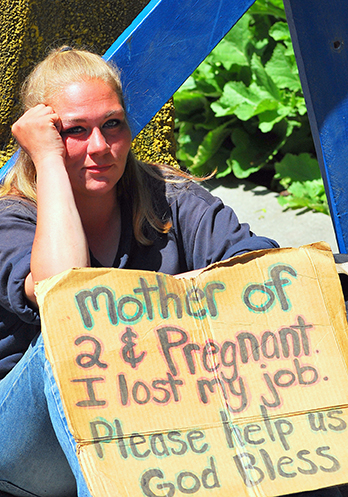
.jpg)
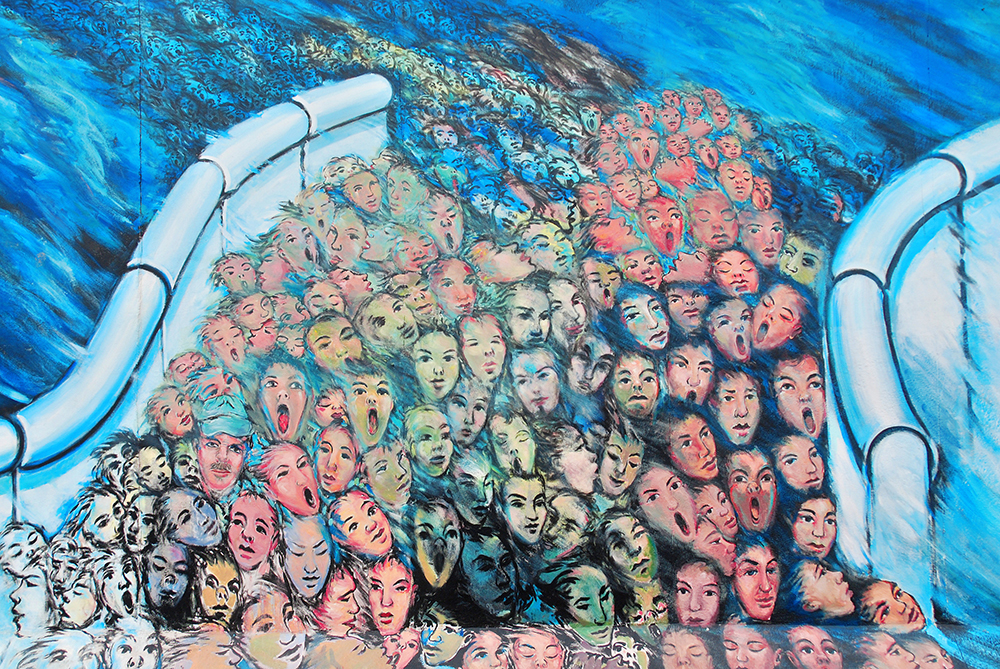
.png)
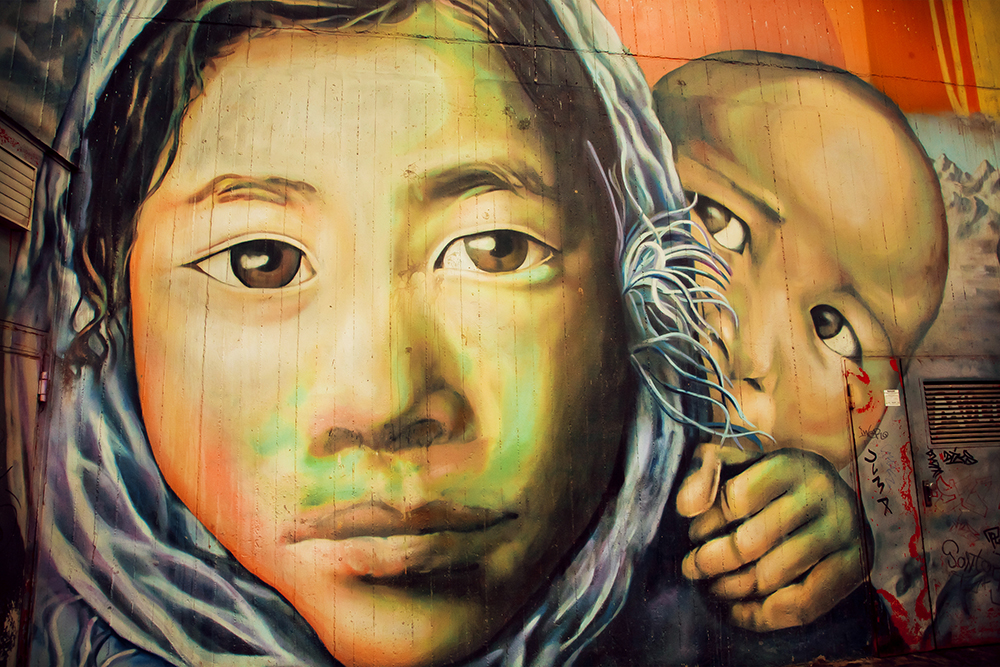
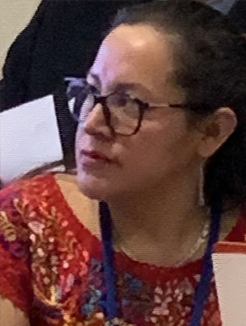

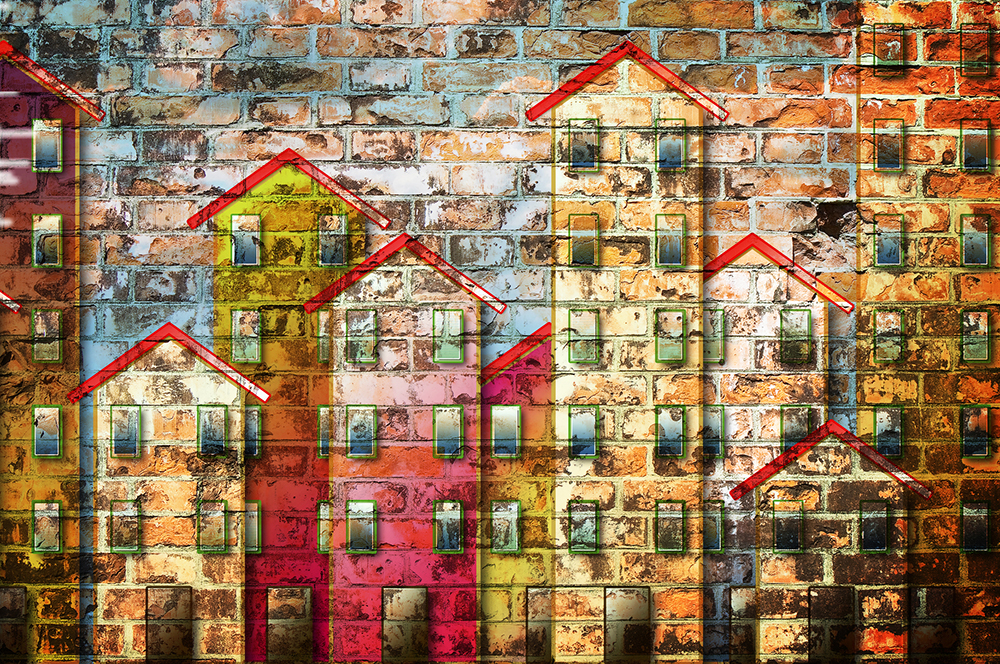
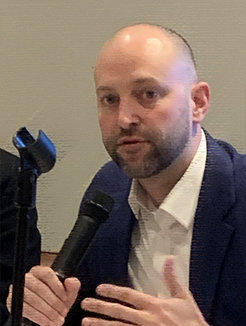
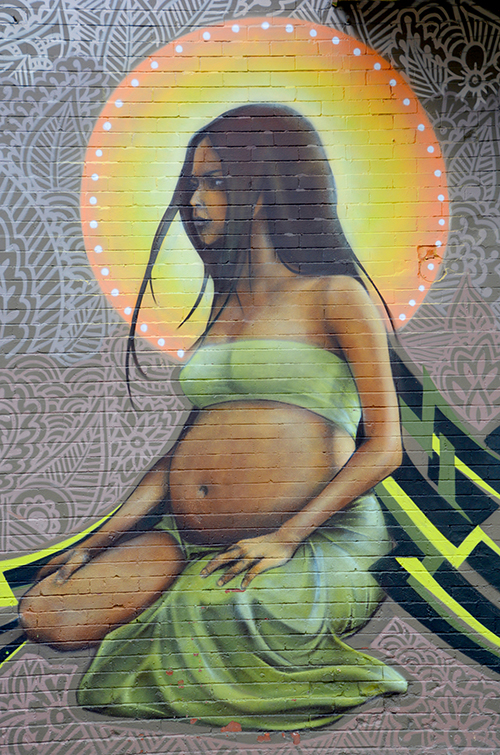
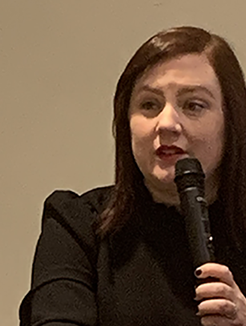
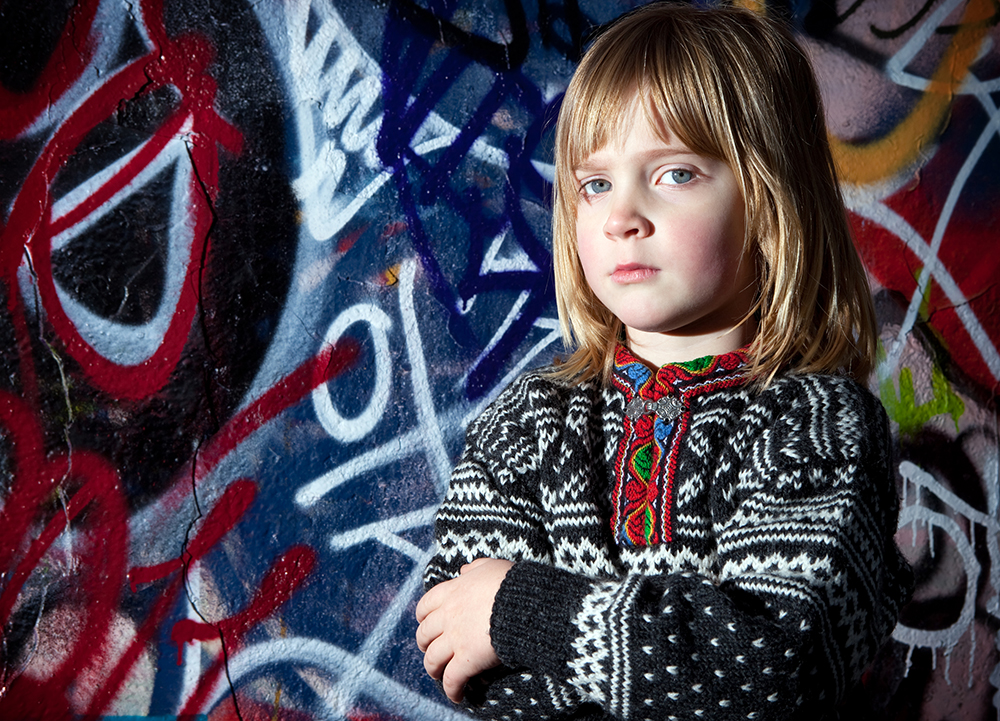
.png)
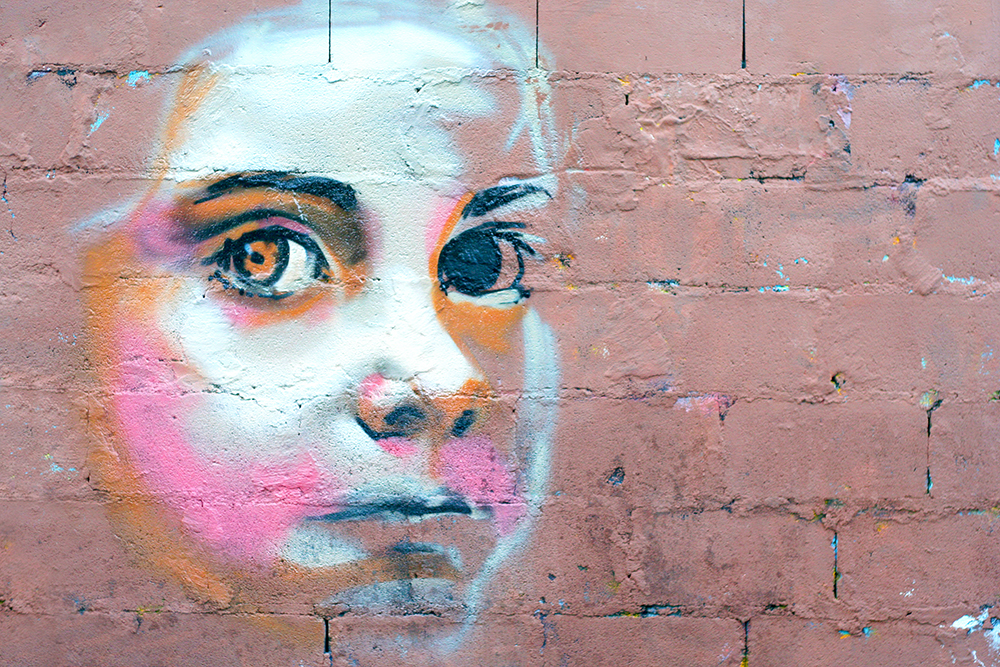

.png)
